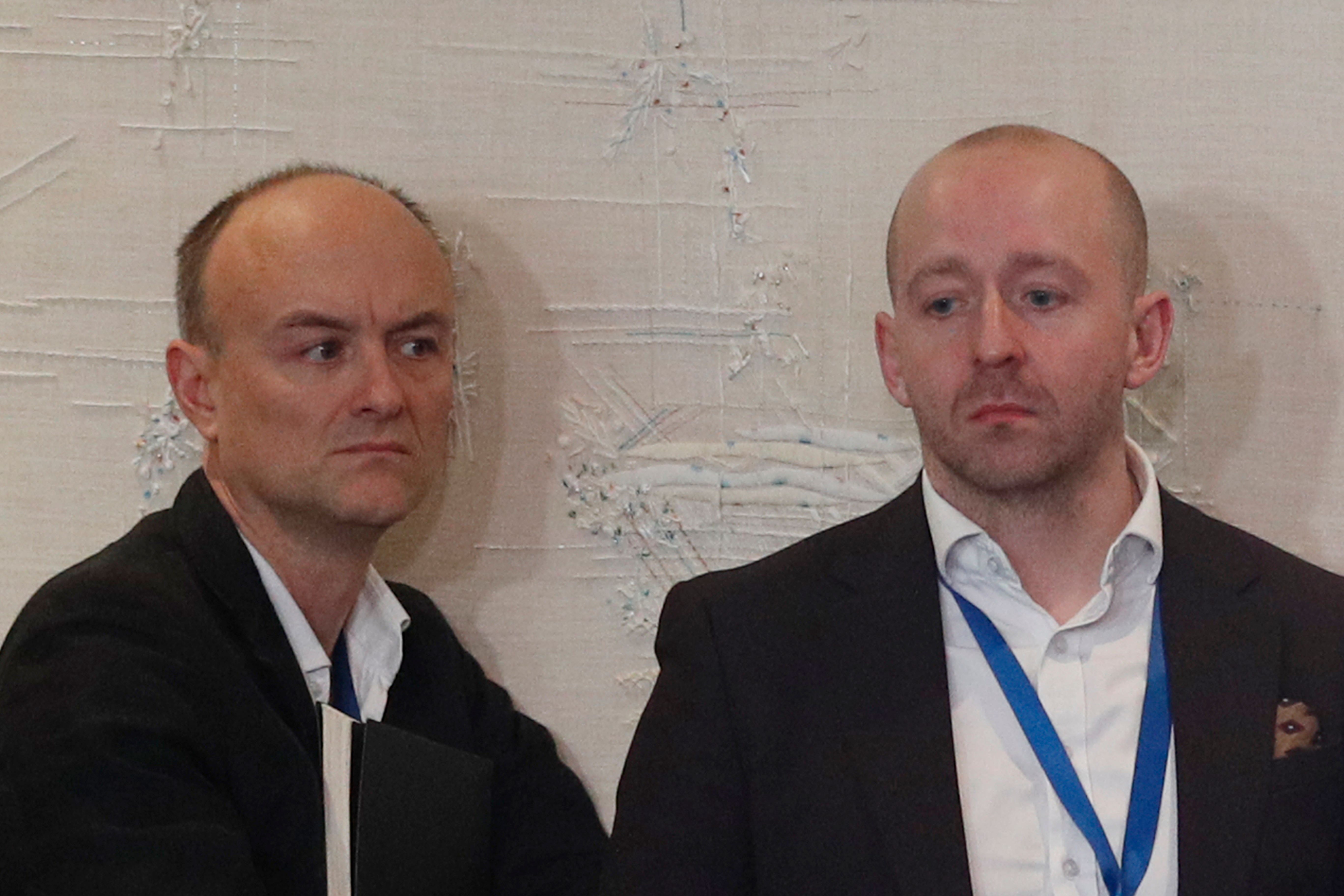Why the Covid inquiry is about to get explosive for Downing Street
Families are disappointed the inquiry might not report before next year’s general election, writes Andrew Grice, but next week might see some political revelations


Boris Johnson and Dominic Cummings sent “disgusting and misogynistic” WhatsApp messages that will emerge at the Covid inquiry, according to George Osborne.
The former chancellor said he understood that “staggering” messages would be disclosed when Cummings, who was Johnson’s most senior Downing Street adviser, appears before the inquiry on Tuesday.
The long-awaited independent investigation, chaired by Heather Hallett, a former Court of Appeal judge, has already heard from more than 100 witnesses. Its first module was about “resilience and preparedness” and it is now looking at “core decision-making”. Families of those who died during the pandemic have said they are disappointed that the inquiry might not report before next year’s general election.
Have there been any explosive revelations so far?
Yes. Simon Case, the current cabinet secretary, described the Johnson government as a “tragic joke” in private messages shown to the inquiry. He discussed with Cummings and Lee Cain, the Downing Street director of communications at the time, whether Johnson’s decisions were being influenced by his fiancee Carrie, now his wife. “The real person in charge is Carrie,” Case quipped. Meanwhile, Cummings described ministers as “moronic”, saying: “They didn’t understand what they were talking about for most of this meeting.” He described the Cabinet Office as “terrifyingly s***” and “totally behind pace”.
What did the scientific advisers make of Johnson?
Not much. Patrick Vallance, the UK’s chief scientific adviser during the pandemic, wrote a daily diary that described the “chaos” inside Downing Street as the virus took hold. “The ridiculous flip-flopping is getting worse,” he said. “The chief medical officer [Chris Whitty] and I are both worried about the extreme inconsistencies in the prime minister lurching from open everything to panic.” Vallance wrote that No 10 was “at war with itself. Carrie faction with [Michael] Gove and another with spads [special advisers] downstairs. The PM is caught in the middle.”
Neil Ferguson, director of the school of public health at Imperial College London, said he was “extremely concerned” about the latest data in March 2020. He added that he was “frustrated” that some government officials had not “comprehended the figures”, adding: “There was a lack of urgency.”
Have there been any more disclosures about Johnson?
He was distracted by his personal life in mid-March 2020, according to Cummings’s messages, which said that he “doesn’t think it [Covid] is a big deal. He thinks it will be like swine flu”.
The former prime minister described long Covid, which now affects an estimated 2 million people, as “b*****ks”. He wrote the phrase on an October 2022 document describing the condition, adding: “This is Gulf War syndrome.” Chris Brightling, a professor of respiratory medicine at Leicester University, told the inquiry: “I’m deeply saddened and extremely angry at the same time.”
Cummings’s evidence says that the government had a “deliberate strategy, a goal of herd immunity”, even though that was repeatedly denied at the time.
Has Rishi Sunak’s name come up?
Yes. He was dubbed “Dr Death” by the person who is now his chief scientific adviser. Angela McLean used the label when, as chancellor, he introduced the “eat out to help out” scheme. John Edmunds, who served on the government’s Scientific Advisory Group for Emergencies (Sage), told the investigation he was still “angry” about Sunak’s apparent failure to consult the top scientific and medical officers despite concern that encouraging people to go to pubs and restaurants could lead to a spike in Covid cases.
What about lockdowns?
Ferguson insisted he was initially wary about lockdowns because of the potential damage to society. But the inquiry heard that the possible harms – whether economic, psychological or educational – were not modelled. Anne Longfield, the former children’s commissioner, told the inquiry that young people had “suffered disproportionately” from the efforts to curb the virus by a government that was “indifferent” towards them.
Was the government prepared for a pandemic?
No. Matt Hancock, health secretary at the time, admitted its strategy was “completely wrong” because it did not consider how to stop a new disease. He acknowledged the “terrible” preparations for social care and that the government did not know how many people relied on it or how many care homes there were. The inquiry heard that ministers knew in 2016 that “even a moderate pandemic would overrun the system”.






Join our commenting forum
Join thought-provoking conversations, follow other Independent readers and see their replies
Comments